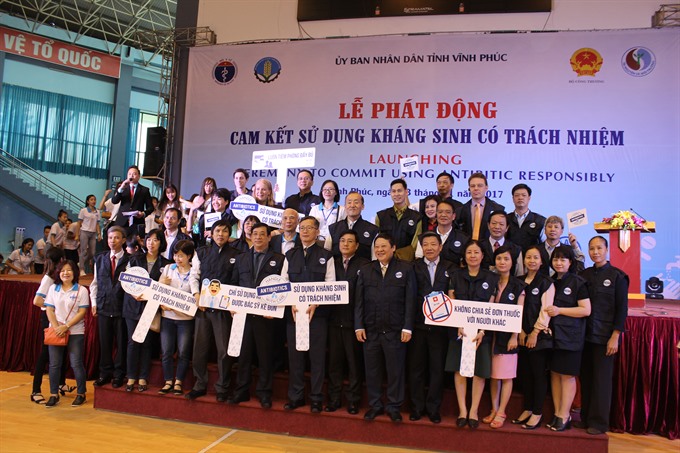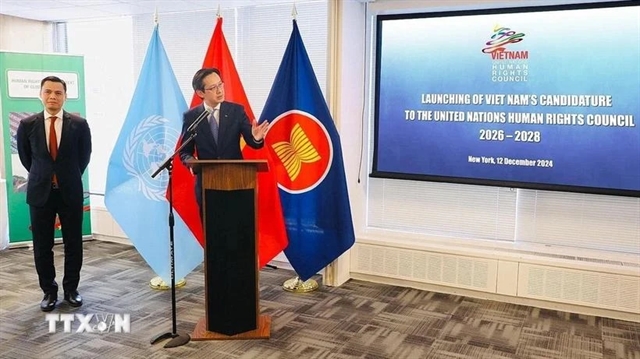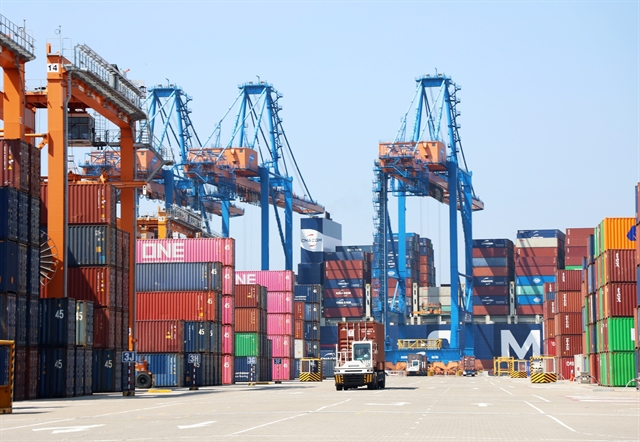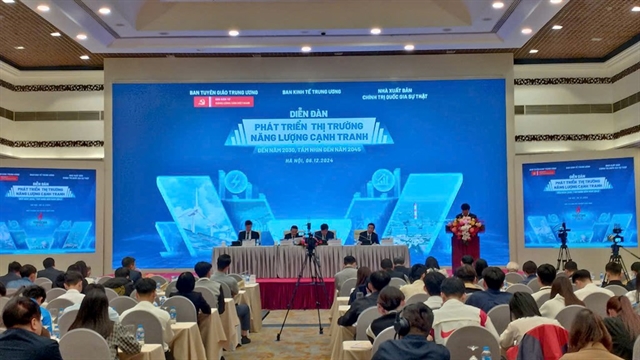

Experts called for stronger action from all sectors to stop the misuse and overuse of antibiotics to combat resistance on the occasion of the third World Antibiotic Awareness Week on November 13-19.
 |
| Delegates attend a meeting to kick off Antibiotic Awareness Week in Vĩnh Phúc Province today. — Photo courtesy of the Ministry of Health |
VĨNH PHÚC — Experts called for stronger action from all sectors to stop the misuse and overuse of antibiotics to combat resistance on the occasion of the third World Antibiotic Awareness Week on November 13-19.
Highlighting the importance of commitment at the local level, the National Steering Committee for Antibiotic Resistance, the Food and Agriculture Organisation (FAO) of the United Nations and the World Health Organisation (WHO) co-organised the event to kick off Antibiotic Awareness Week in Vĩnh Phúc Province on Monday.
"Stronger policies and high level of commitment alone are not enough to stop the misuse and overuse of antibiotics," Deputy Minister of Health Nguyễn Viết Tiến, chair of the National Steering Committee for Antibiotic Resistance in Việt Nam, said at the event.
"We must engage the communities and make sure everyone knows how to use antibiotics responsibly. Every regulator, farmer, doctor, patient and consumer must take action to stop the rise of antimicrobial resistance (AMR) in our communities,” Tiến said.
“Việt Nam has shown impressive leadership in creating mechanisms for collaboration across sectors. We see continuous progress in moving towards improved surveillance systems and control of antibiotic use to safeguard both human and animal health,” Dr Kidong Park, WHO representative in Việt Nam, said.
“Việt Nam is taking important steps to join the WHO Global Antimicrobial Resistance Surveillance System. AMR surveillance is the cornerstone for assessing the burden of AMR and for providing necessary information for action in support of local, national and global strategies,” Dr Park said.
In September, the Government of Việt Nam called on the ministries of health; agriculture and rural development; natural resources and environment; and trade and industry to discuss the successes and challenges of the National Action Plan on AMR 2013-20. Later, in October, an AMR surveillance working group was founded to improve collaboration among stakeholders working on AMR surveillance in human and animal health, communities and the environment.
In 2017, the Ministry of Agriculture and Rural Development also launched the National Action Plan for Management of Antibiotic Use and Control of Antibiotic Resistance in Livestock Production and Aquaculture 2017–20.
“Action to manage antibiotic use and control AMR in one sector must go hand-in-hand with enforcement of regulations and collaboration with other sectors. FAO and WHO stand with the Government of Việt Nam to support this effort,” JongHa Bae, representative for FAO in Việt Nam, said.
A recent survey of the health sector showed that antibiotics were sold without prescriptions at 88 per cent of urban drugstores and 91 per cent of rural drugstores. Antibiotics have contributed to 13.4 per cent of drugstores’ total sales in urban areas and 18.7 per cent of drugstores’ total sales in rural areas.
According to WHO, the estimated death toll due to AMR is some 700,000 deaths per year globally. Failure to control AMR will lead to an increase in cases of up to 10 million per year by 2050, which is more than the estimate for cancer and 10 times more than that for diabetes. — VNS









